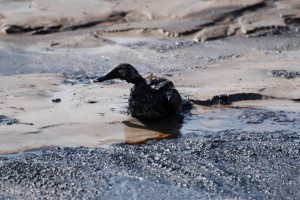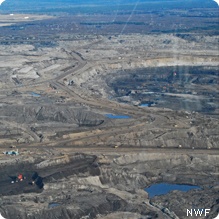We have much more to do and your continued support is needed now more than ever.
Investors Demand Environmental Improvements from Tar Sands Industry

It’s expensive to produce, and difficult to transport. Thousands of people—from Alberta, Canada to Winnsboro, Texas to Portland, Maine—have been fighting pipeline developments in their backyards, but too often oil companies have been unabashedly ignoring the environmental and health concerns that residents and scientists alike share about pipelines and the development of this dirty fuel.
However, the conversation is changing, and this time it’s including voices that TransCanada, Enbridge, and other corporate tar sands giants can’t ignore. In addition to the investor action this week, markets showed a case of the jitters over tar sands in two separate incidents last week. Both major tar sands pipeline companies, TransCanada and Enbridge are under tight scrutiny and being watched closely.
When TransCanada announced it was shutting down the original Keystone pipeline over a safety concern, oil prices bounced downward for several hours. And when NWF issued a report that was critical of Enbridge’s operation of the aging Line 5 Midwest pipeline, NASDAQ noted Enbridge’s stock dipped downward.
Reining in Growing Giants
“Oil sands development is the fastest growing industrial source of GHG emissions in Canada, projected to approximately double by 2020.” –Environment Canada, Canada’s Emissions Trends, July 2011

“When Wall Street says there are serious problems with tar sands development, it should send a clear message that betting on a dirty oil future is a loser for everyone.”
![]() Make your voice heard! Take Action to protect climate and wildlife from the development of the dirtiest fuel on the planet!
Make your voice heard! Take Action to protect climate and wildlife from the development of the dirtiest fuel on the planet!





















